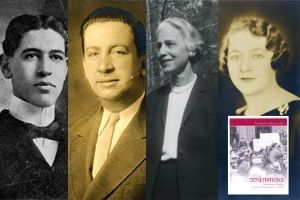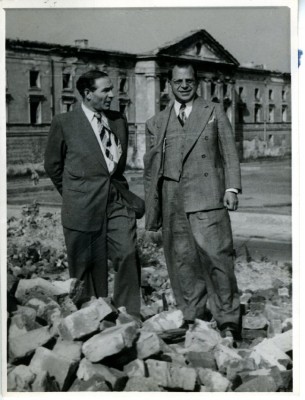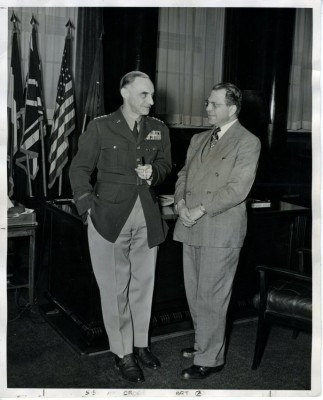Ten in the Twentieth: Baltimore Jews and Social Justice 1970s

Article by Dr. Deborah R. Weiner. Originally published in Generations 2009-2010: 50th Anniversary Double Issue: The Search for Social Justice.
The Baltimore Jewish community has produced many leaders who have worked to make the world a better place. The range of issues they have addressed is impressive: from women’s suffrage to civil rights, labor relations to helping the elderly, refugee resettlement to eliminating poverty, and much more.
This chronology traces the careers of ten Baltimoreans who stood up for social change, with each person’s entry revolving around a turning point—one for each decade of the twentieth century. This is by no means a “Ten Best” list. The people included here are remarkable for what they accomplished, but others, equally remarkable, could have been chosen as well. These profiles should be seen as representative of a larger group of Baltimore Jews who have made major contributions to their communities and to the broader society in myriad ways.
The 1970s: Harry Greenstein
Click here to start from the beginning.
1971: Harry Greenstein (1895-1971) dies, marking the end of an era in Baltimore’s Jewish communal history. Head of the Associated for almost four decades, Greenstein was a major player in international welfare work who always returned home to Baltimore after his relief missions.

After helping organize the YMHA and serving as president, Greenstein became executive director of the Associated in 1928 and served until 1965. During his tenure, the organization changed dramatically to meet the needs of the Jewish community. Services relocated from downtown to northwest Baltimore, agencies consolidated, and present-day institutions such as Levindale, the JCC, and Sinai Hospital took shape.
Greenstein’s local achievements were all the more remarkable considering that he was frequently “loaned out” by the Associated to state, federal, and international agencies, where his impact was substantial. Appointed Maryland’s first relief administrator in 1933, he set up the state’s public welfare structure. In 1939, with European Jewry in crisis, he prepared a report for American Jewish leaders which FDR termed a “model of constructive absorption of immigrants” and led to the creation of the National Refugee Service. For the United Nations Relief and Rehabilitation Administration, he helped design and administer plans for helping Europe recover from World War II. Appointed advisor on Jewish affairs to the U.S. Army of Occupation in Germany and Austria in 1949, he was instrumental in liquidating the displaced persons camps and resettling Holocaust survivors.

The title of Greenstein’s biography, “Justice, Not Charity,” exemplified his approach to welfare work. Communal leader Paul Cordish captured his impact when he called Greenstein “the personification of the collective conscience of our community.”

2 replies on “Ten in the Twentieth: Baltimore Jews and Social Justice 1970s”
I am looking for information about a Jewish hospital in Baltimore in the early 1970s. A former RN there told me she was discriminated against because she was not Jewish, and was made to eat in a dining room separate from the kosher dining room. Need more details to understand if this was so or a misinterpretation.